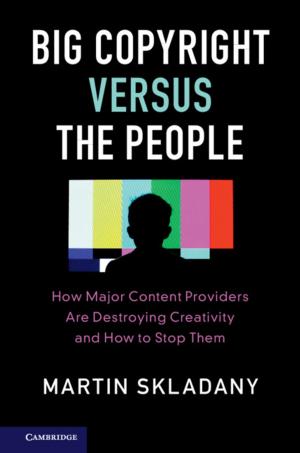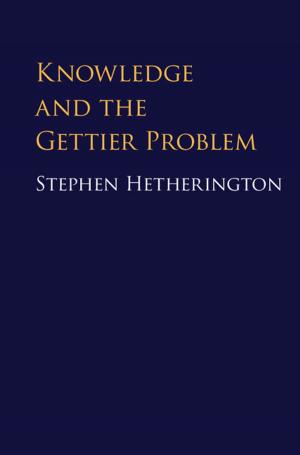Disrupting Boundaries in Education and Research
Nonfiction, Reference & Language, Education & Teaching, Educational Theory, Educational Psychology, Health & Well Being, Psychology| Author: | Suzanne Smythe, Cher Hill, Margaret MacDonald, Diane Dagenais, Nathalie Sinclair, Kelleen Toohey | ISBN: | 9781108244824 |
| Publisher: | Cambridge University Press | Publication: | August 17, 2017 |
| Imprint: | Cambridge University Press | Language: | English |
| Author: | Suzanne Smythe, Cher Hill, Margaret MacDonald, Diane Dagenais, Nathalie Sinclair, Kelleen Toohey |
| ISBN: | 9781108244824 |
| Publisher: | Cambridge University Press |
| Publication: | August 17, 2017 |
| Imprint: | Cambridge University Press |
| Language: | English |
In Disrupting Boundaries in Education and Research, six educational researchers explore together the potentialities of transdisciplinary research that de-centres human behaviour and gives materiality its due in the making of educational worlds. The book presents accounts of what happens when researchers think and act with new materiality and post-human theories to disrupt boundaries such as self and other, human and non-human, representation and objectivity. Each of the core chapters works with different new materiality concepts to disrupt these boundaries and to consider the emotive, sensory, nuanced, material and technological aspects of learning in diverse settings, such as in mathematics and learning to swim, discovering the bio-products of 'eco-sustainable' building, making videos and contending with digital government and its alienating effects. When humans are no longer at the centre of the unfolding world it is both disorienting and exhilarating. This book is an invitation to continue along these paths.
In Disrupting Boundaries in Education and Research, six educational researchers explore together the potentialities of transdisciplinary research that de-centres human behaviour and gives materiality its due in the making of educational worlds. The book presents accounts of what happens when researchers think and act with new materiality and post-human theories to disrupt boundaries such as self and other, human and non-human, representation and objectivity. Each of the core chapters works with different new materiality concepts to disrupt these boundaries and to consider the emotive, sensory, nuanced, material and technological aspects of learning in diverse settings, such as in mathematics and learning to swim, discovering the bio-products of 'eco-sustainable' building, making videos and contending with digital government and its alienating effects. When humans are no longer at the centre of the unfolding world it is both disorienting and exhilarating. This book is an invitation to continue along these paths.















